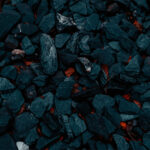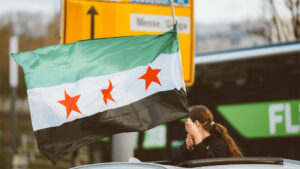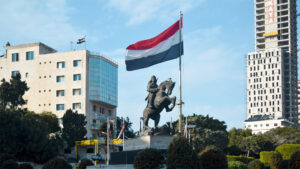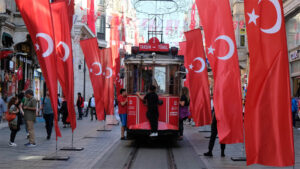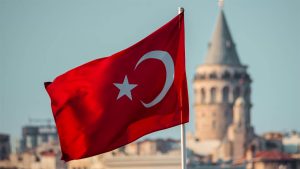Syria’s interim leader Ahmed Al Shara has been meeting with the region’s big dogs – Saudi Arabia and Turkey. Respectively, they represent the financial backbone and the military power of the region, so buddying up isn’t the worst idea.
Syria is a complex place, with six distinct regions of varying autonomy. So, there’s a lot of moving parts. Al Shara is teasing the idea of inviting Turkey to establish air bases in southeastern Syria, solidifying Turkish influence in the region.
This sounds like a pretty sweet deal for Turkey. It limits Saudi and Iraqi influence. They could box in Syrian Kurdish forces and prevent Kurdish separatism in Turkey. The US would likely vacate Syria and rely on Turkey to handle things. Not a bad deal for the Turks.
If Turkey could limit Syrian conflict, they could shift their focus to other regional priorities. Should that happen, it is very likely that Turkish power would make a return to pre-WWI levels and reshape the region’s balance of power.
Here at Zeihan on Geopolitics, our chosen charity partner is MedShare. They provide emergency medical services to communities in need, with a very heavy emphasis on locations facing acute crises. Medshare operates right in the thick of it, so we can be sure that every cent of our donation is not simply going directly to where help is needed most, but our donations serve as a force multiplier for a system already in existence.
For those who would like to donate directly to MedShare or to learn more about their efforts, you can click this link.
Transcript
Hey Everybody. Peter Zeihan here, coming to you from a hotel room in San Antonio. I think so. Anyway, today is February 5th. You’re going to see this on the sixth and the last couple of days. The new interim leader of Syria, a guy by the name of Ahmed Al Shara, has been making the rounds in the Middle East with the two most important stops being, Saudi Arabia, where the money comes from, and Turkey, where the power comes from.
While there, he had talks about economics and aid and security with all the players, and he specifically mentioned that he was looking forward to an extending an invitation to the Turks to set up military facilities in the country, specifically air bases in the desert in the southeast of the country. This makes a lot of sense for a lot of reasons, for a lot of players.
But let me just kind of break down what Syria is, what it’s not, and how the Turks fit in. Well, this series is not a single place. It’s the race that was left over from the collapse of the Ottoman Empire and at very few points throughout, history, going back centuries. Has it ever been an autonomous chunk of territory?
It’s only because it was all that was left over after the rest of the region got carved up into today’s nation states, it was what was left, and eventually a dictatorship took over, ran the place into the ground and led to the civil war that has recently concluded, or at least entered a new stage. Anyway, there’s not one Syria.
There’s there’s six, in the far north west, there’s a thin coastal strip, it’s where Latakia is. And that is home to a number of minorities, most notably the Alawites, who until recently ran the country. But in the end of the civil war, they basically fled everywhere else. It all went home. And so they have seen the greatest decline in their prospects of any of the groups, as this war has come to at least a temporary conclusion.
And they I don’t want to say they’re a non-factor, but they’re in a box and they really can’t project power to the rest of the country. Now you go to the east, you cross some coastal mountains, and you get to the corridor of Aleppo, Ham and Hama. And the this is the demographic and economic core of the country.
It’s also been devastated. This is where most of the fighting happened. And this is certainly where the Russians carried out what they call urban pacification programs, which is basically putting artillery and air power out of a city and bombing anything that is taller than two rocks on top of one another. This is where most of the war crimes happen.
This is where most of the genocides were even before the war, when the Alawites were in charge by themselves. You move south, you cross a desert gap, and you get to Damascus, which is an oasis city with a couple million people. It’s basically a fortress city in the middle of nowhere. And you go further south from that, and you hit the Druze mountain, which is home to probably the most bad ass of the minorities in the Middle East and is a world all its own.
In the northeast, along the Euphrates River, you have where the Kurds live, and then the southeast half, two thirds of the country, is hard desert. And aside from a few Badoo that go through there, this is kind of ISIS country. There’s really not much. So if the, the bases happened, they’re going to be in that desert section.
And that achieves a number of things for the Turks. Number one, it puts a bracket around what is possible in Syria, and it separates Syria from both Saudi Arabia and Iraq. And considering smuggling in this part of the world is a big deal and has really helped fuel the war. That is something that the Turks would really like to do, but also be able to project power both into Mesopotamia and into Arabia, which would be a nice touch.
But most importantly, it puts the sharp end of Turkish power on both sides of the Syrian Kurds. And the Turks are worried primarily about the Kurds causing the secessionist uprisings back home. So anything that puts the Syrian Kurds into a box is something the Turks are going to want to do.
In addition, that also basically ends any possibility of the United States having any military presence in the country, because we’ve been partnering with the Kurds to resist Assad. And now that Assad, the Alawite government of old, is gone, the strategic need for the US is weakened. And if Turkey, which is how we supply our forces in Syria, turns hostile and puts military bases on both sides of American forces, it’s just not a tenable situation.
Okay. So, that’s kind of the small Syrian picture. The bigger Turkish picture is more important. Turkey has the most viable land. The most sophisticated economy, the most powerful economy, the most powerful military, the most advanced industrial base in the broader region. And that’s not just in the Middle East either, includes the caucuses and the Balkans as well, and arguably even the Black Sea region.
But while Turkey is powerful and is the most powerful player, it can’t do everything at once. It has to choose. And so it’s got issues with Greece and with the Western Balkans and with Ukraine and the Russians and with the caucuses and with Iran and of course, with the Middle East. But now with the Civil War having wound down in Syria, Turkey has this tantalizing possibility to have this area and be done with it.
It’s not that there’s a lot that’s economically viable in Syria at all. It’s not. But if there’s no longer a war and you have a military footprint in the area, and the tentative government in the area is pro Turkish because you put them there, then the Turks have achieved potentially something that I don’t think a lot of people appreciate.
Stability in Syria. I mean, that’s, that’s hard. And if this sticks, if the Turks will still have to invest quite a bit of military, assets here to make it stick, but if it sticks, then the Turks can move on to an area that is far more core to their interests. Which means for the first time in 30 years, the Turks are not simply a free agent, but a free agent with a free hand.
And I can guarantee you that the major players at the Turks might stick their noses into, the European Union, the Russians, the Iranians are not ready for an unrestrained turkey to reenter their neighborhood. So this is about to get delightfully real very quickly. We haven’t really seen the Turks act as a true power since before World War One.
It’s been over a century. But in the aftermath of the Cold War and now in the aftermath of the Syrian Civil War, the Turks are back. They’ve got the capacity, and they’re trying to decide where to go next.


